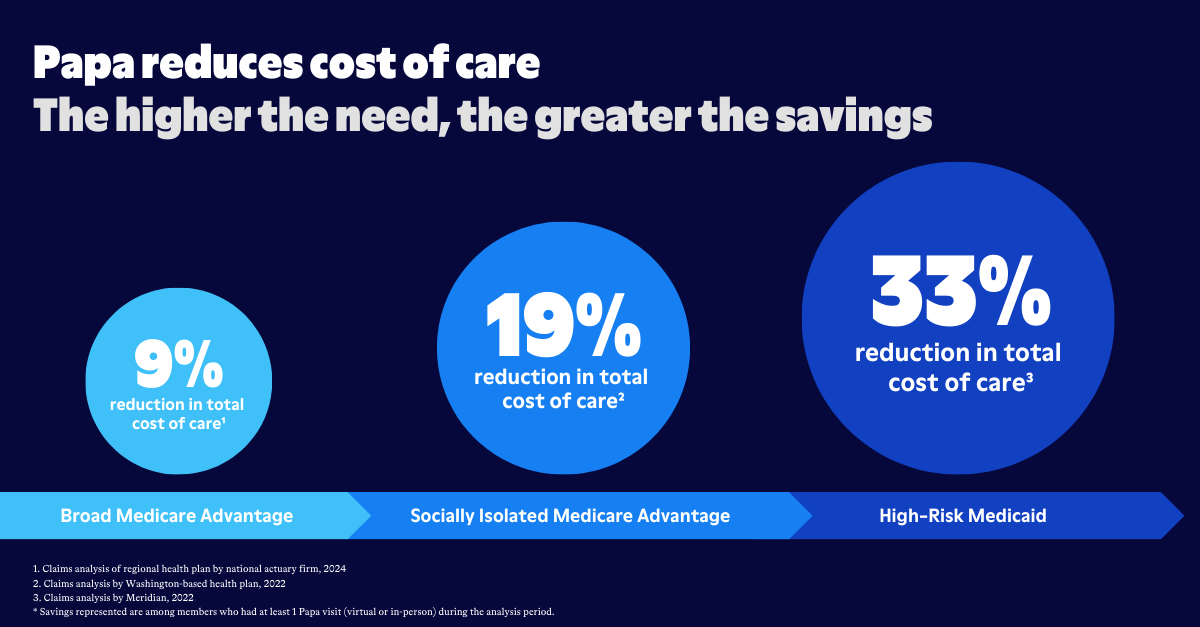
Medication non-adherence: It seems like a simple problem to fix–just make sure people take the right medications at the right times in the right way.
But it’s not so simple.
When patients don’t take their medications as prescribed, it costs the U.S. health care system anywhere from $100-$300 billion per year. Among older adults, in particular, the impacts of nonadherence have been well established: “A large body of evidence,” notes one recent report by the PAN Foundation, “links poor adherence to prescribed medications to unfavorable health outcomes and increased costs.”
So what’s preventing people from following their physicians’ advice and directions? Shouldn’t it just be a matter of explaining how important adherence is to their health?
Unfortunately, it’s not that easy, as many patients—and especially older adults—struggle with all kinds of adherence-related hurdles. Most people know they should take their medications and that they should take them at certain times or in certain ways, it’s just that the challenges that come with daily life too often get in their way.

Here, we’ll have a look at what those challenges are and the role that Medicare Advantage plans can play in helping members overcome them.
Barriers to medication adherence
Medication adherence entails taking prescribed medications at the right dose, the right frequency, and the right time. That’s straightforward enough if you’ve been prescribed a single drug and your doctor’s orders are top of mind, but it can be a different story for older adults, who take six to eight different medications, on average. In addition, for many older adults, significant barriers often stand in the way of adherence. Among others, they may include:
A lack of reliable transportation
Many older adults can’t drive or don’t have access to a car, while others live in areas that lack convenient public transportation. Without a reliable way to get to doctor’s appointments and follow-ups, they may wind up with outdated prescriptions that are no longer effective or potentially dangerous. Likewise, it may prove difficult or impossible to get to the pharmacy to pick up newly prescribed medications or get refills for the drugs they’re already taking.
Issues related to real or perceived side effects
Adverse drug effects are common among older adults and are a frequent cause of hospitalization. Fearing that they may become ill, many patients who experience side effects—even if they’re relatively minor—often choose to either stop taking their medications or take them at a lower dose or frequency.
The belief that medications won’t help or aren’t working
Some patients stop taking their medications because they don’t trust their doctor’s recommendations or think their medications are ineffective. They may decide that because of a previous experience, or because they don’t feel markedly different after taking a certain prescription, the medication doesn’t work. This belief causes them to skip doses or not take them at all.
Difficulty remembering to take medications
Especially for patients taking multiple medications, keeping track of which drugs to take and when can be overwhelming. The problem is far worse, and potentially dangerous, for people with conditions like dementia. For some, poor memory could lead to not taking medications that are important to their immediate health. For others, it could cause them to take the wrong medications, the right medications at the wrong time, or in the wrong doses.
Financial concerns
A very real hurdle for many older adults is the cost of prescribed medications. Medication is expensive, and while it is often covered, many older adults don’t understand their insurance benefits. Because of this, they may decide their prescriptions are too expensive and therefore not worth taking. Others may look to cut back on costs by skipping doses, splitting pills, or postponing trips to the pharmacy for refills. In fact:
- Up to 50% of older adults do not take medications as prescribed
- 1 in 5 older adults take inappropriate medications.
- 69% of hospital admissions were avoidable or potentially avoidable due to inappropriate medications.
Helping members with medication adherence
With research showing that medication nonadherence is a cause of everything from increased hospital admissions to greater rates of morbidity and mortality, a growing number of Medication Advantage plan administrators are wondering if there’s something they can do about it.
The answer, many have found, involves helping their older-adult members by offering companion care services as a supplemental benefit.
With companion care, trained and vetted professionals provide not just basic companionship, but also assistance with activities of daily living. The companion becomes the member’s trusted friend—someone with whom they can go to the movies or have a long conversation—but often more significantly, they become a helper they can lean on in a wide range of challenging scenarios.

When it comes to medication adherence specifically, the companion care assistant can support the member by providing transportation to appointments and the pharmacy, communicating with doctors about renewals and refills, and by clarifying when and how individual medications should be taken. They can also share medication-reminder strategies, and they can talk about why medication adherence is so important to overall health.
Ultimately, with companion care, members are provided the support they often need to ensure they take their medications as prescribed. That’s good for them, of course, but it’s also good for any health plan interested in improving outcomes and controlling costs.



